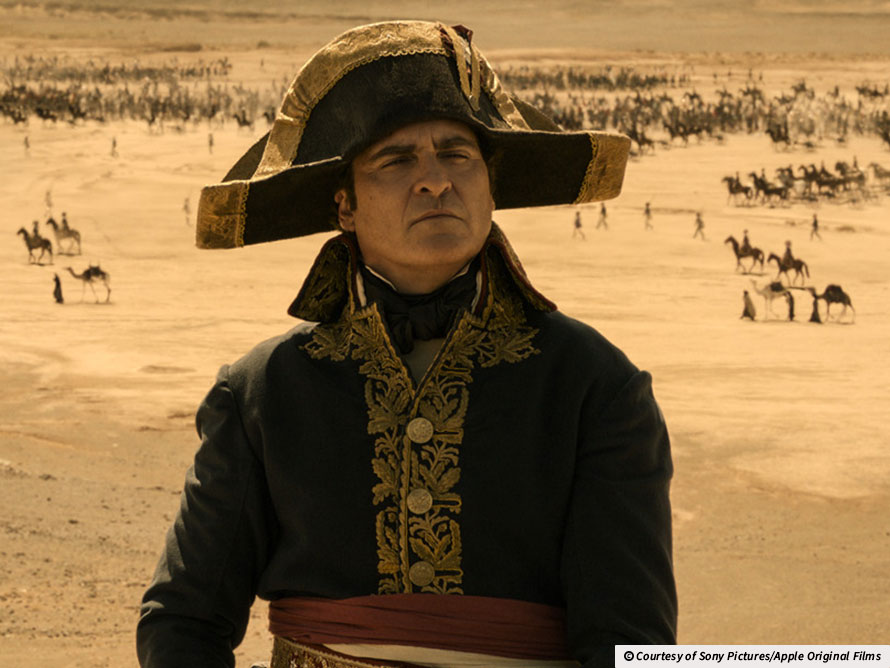Is history a story of great men? Ridley Scott’s new film Napoleon tells the epic story of one man’s rise and fall. But some think we should find more inclusive stories about our past.
It’s war! Film director attacks Paris critics
 Man of the hour: Joaquin Phoenix plays the French leader Napoleon Bonaparte.
Man of the hour: Joaquin Phoenix plays the French leader Napoleon Bonaparte. Glossary
Tyrant - A cruel and unrestrained ruler.
Corsica - An island in the Mediterranean that has been part of France since the 18th Century.
French Revolution - The overthrow (and subsequent execution) of France’s king and aristocratic government in 1789. The revolution became infamous and influential worldwide.
Consul - The name given to the two magistrates who had supreme authority in the Roman Republic. They were elected annually.
Alexander the Great - A king of ancient Macedon who is renowned as one of the greatest military leaders in history. He conquered a vast empire stretching from Greece to modern-day Pakistan.
Michelangelo - An Italian Renaissance sculptor, painter, architect and poet. He lived from 1475 to 1564.
Winston Churchill - The British prime minister during World War Two, and later from 1951 to 1955.
